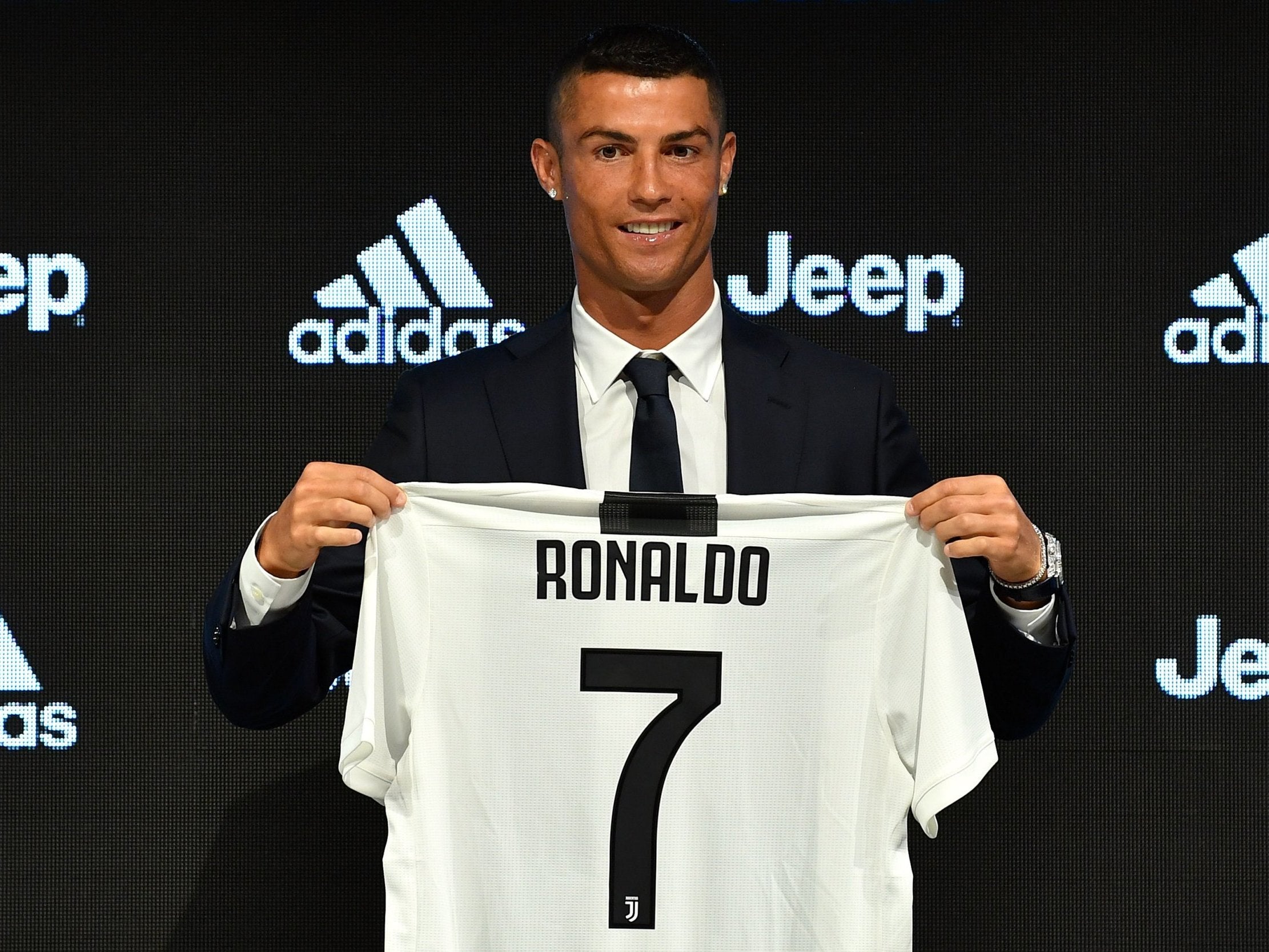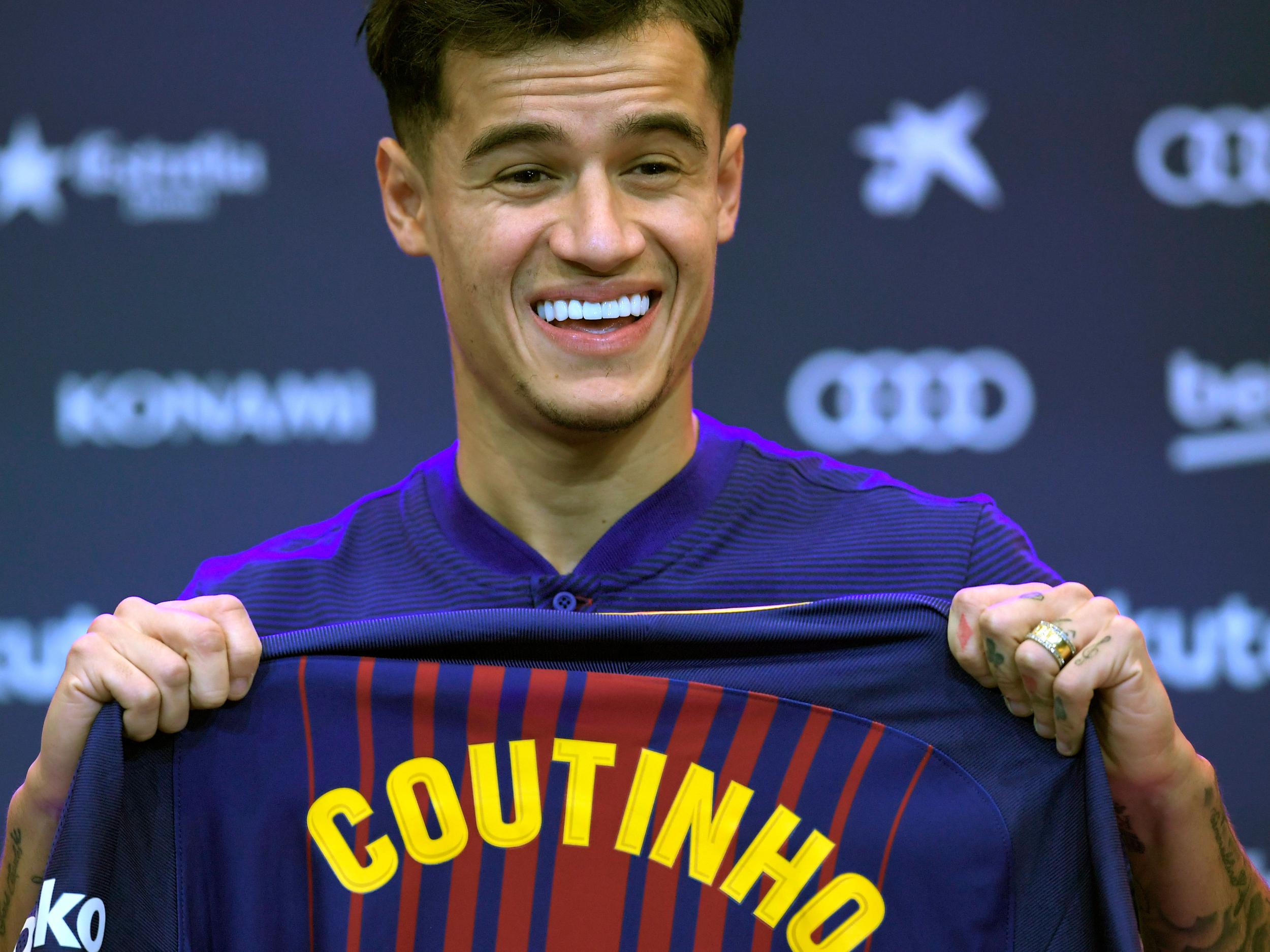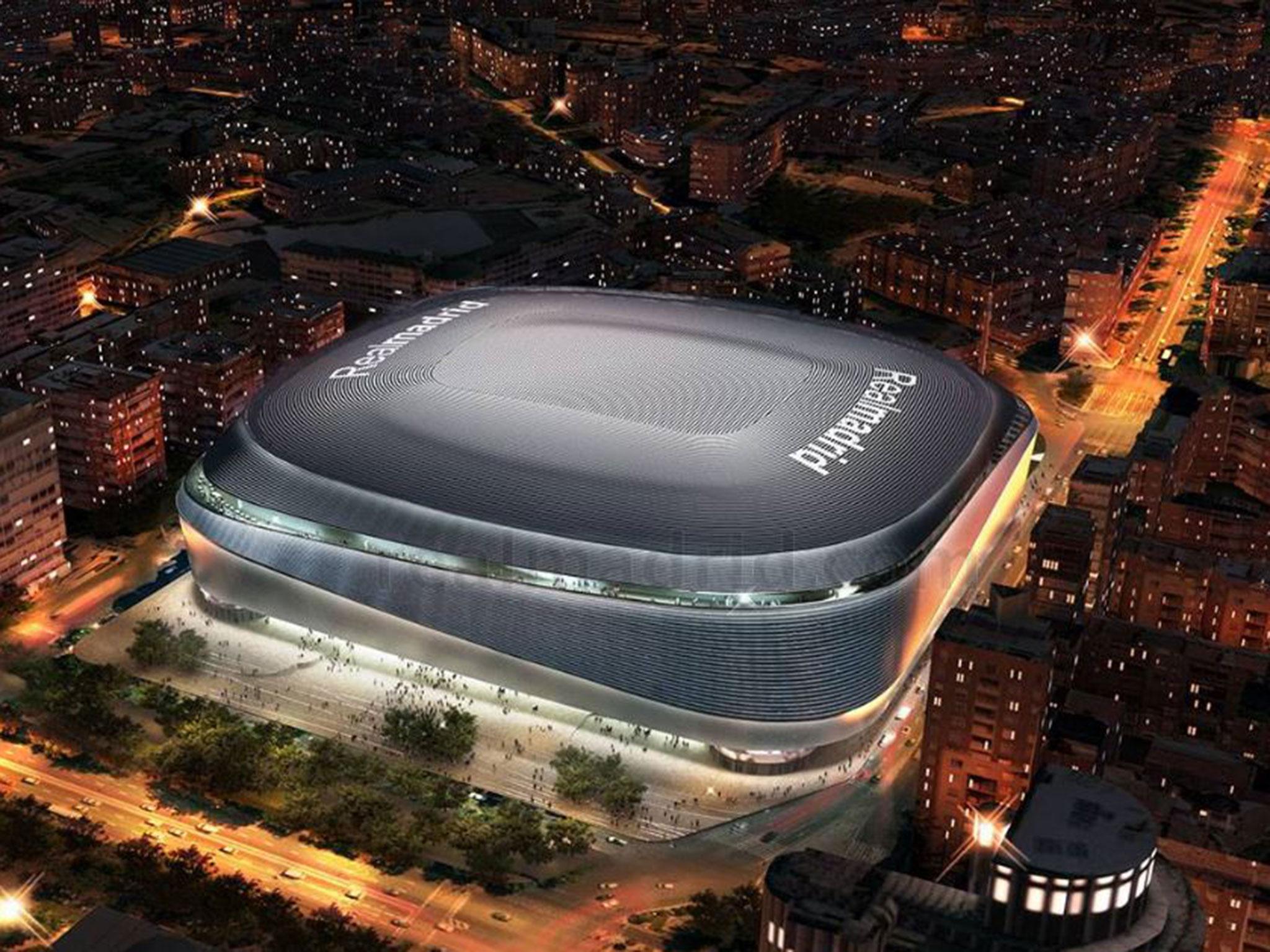How Real Madrid and Barcelona have gone from high-rolling transfer kings to frugal penny-counters
New stadium costs, and offsetting those costs, are a more primary concern than signing the best players in the world at the moment
Real Madrid presented 19-year-old Ukranian keeper Andriy Lunin on Monday. He spoke well and is by all accounts a great prospect, but wasn’t this supposed to be the summer when the club made the biggest noise in the transfer market since 2009 when they bought Cristiano Ronaldo as part of a 220m euros spending spree?
Was it not also meant to be the summer when Barcelona landed World Cup winner and Ballon d’Or contender Antoine Griezmann?
There are still five weeks of the transfer window remaining in Spain and a lot can happen. But Real Madrid have so far sold Ronaldo for 100m euros, admitted they will not be buying Neymar or Kylian Mbappe, and their top signing to date is 22-year-old right-back Álvaro Odriozola for 30m euros.
And Barcelona have lost out on Griezmann because Atletico Madrid were able to offer him around 10m euros more in salary.
Let’s not get carried away and say the two big spenders from La Liga are struggling for money. But a recent opinion piece in Barcelona’s Diario Sport suggested: “Barça and Madrid: no longer kings of the Mambo”.
There is little doubt part of Real Madrid’s prudency can be put down to ‘saving-up’ for eventually signing Neymar, probably next season.
But their spending record in recent years is surprising all the same. Since the 2014-15 season they have earned 55m euros more in the transfer market than they have spent.
According to Transfermarkt.com they are ninth in the spending league table in that time with spending levels half that of Manchester City’s.
Madrid may yet sign Eden Hazard but, as things stand, they have huge reservations about meeting any asking price that exceeds 120m euros. The Courtois deal could be done, but largely because he’s going cheap having run his contract down. If there really is no wow-factor acquisition this year then that would be the club’s fourth frugal summer in succession.

Barcelona, meanwhile, baulked at any suggestion they should try to match the 23m euros-a-season Atletico Madrid are now paying Griezmann.
They missed out on the Frenchman and he subsequently became one of the stars of the World Cup. They have since moved in on the more modest target, Chelsea’s soon to be 30-year-old Brazil winger Willian.
Both clubs make incredible amounts of money. But their spending is also huge and when they are hit with a 600m euros (in the case of Barcelona) and a 400m euros (in the case of Madrid) new stadium bill then the effects are bound to be felt.
Barcelona’s revenue figures for the 2017-18 season shows record-breaking earnings of 914m euros. But the club’s spending is at 882m euros and that is also an all-time high.
That 914m euros figure was also boosted by the 222m euros the club received for Neymar. And while they were paid the Neymar money upfront, they still have to finish paying for the players bought to replace him.

They put down the first 50m euros of the Coutinho fee in January and paid a further 35m at the start of July. They will have to find another 35m for the final instalment next summer.
They paid 70m euros upfront last summer for Ousmane Dembele and had to pay Borussia Dortmund the remaining 35m euros this summer. And both Coutinho and Dembele also came with sizeable add-ons payable according to how many games they play and trophies they win.
Barcelona’s biggest problem continues to be the wage bill. In October 2017 they made their budget statement for the coming season and admitted the wage bill was running at 84 per cent of the money coming into the club. The financial regulations written into the club’s own statute book prevent that figure from staying at over 70 per cent for any sustained period.
With a large part of their wage bill due to be paid in July the club are understood to have spoken to several Spanish banks for a loan. It is something they have done in the past to overcome a temporary financial bump in the road and not a sign of imminent economic meltdown
But even without spending that 100m euros that was ear-marked for Griezmann at the start of the summer, they need to sell. Keeper Jasper Cillessen, defenders Douglas, Lucas Digne, Marlon and Yerry Mina, midfielders Aleix Vidal, Andre Gomes and Denis Suarez, and forwards Paco Alcacer and Rafinha are among those being offered around Europe and beyond.
Paulinho is already off the wage bill having gone back to China after only one season at Barcelona and what prevents Dembele leaving is the current impossibility of recouping his huge transfer fee.
The shadow of the stadium rebuild looms large and is the reason behind the spending caution. Barcelona have hired the investment bank Goldman Sachs to help them finance the 600m euros renovation.
The club will begin work on the project next summer. ‘Espai Barça’ (Barça Space) will include a major facelift for the Camp Nou with 5,000 extra seats taking capacity to 105,000.

There will also be an extensive development of its surrounding areas to incorporate a hotel, restaurants and shops; and the renovation of the arena where the club’s basketball, handball, roller-hockey and indoor-football teams play.
The club want to finance the renovation by selling commercial space within Espai Barça, by selling naming-rights for the stadium, and with a loan.
Each of the three pillars of that funding plan needs to raise around 200m euros although the club’s president, Josep Maria Bartomeu says he has received offers of 300m euros for the naming rights.
Despite that claim, made last February, there is still no sign of a deal with anyone to put before the Barcelona club members.
Naming rights is a wonderful idea – build a new ground, put a major multinational brand name on the side of it and they will pay you so much money the building of the arena will end up costing nothing.
Clubs have been quick to talk up this relatively new (in Europe) financing tool and sports marketing companies have been hired to scour the market and find the highest bidder. But as yet Barcelona still have no naming rights partner and Real Madrid are in the same position.
They need to find around 400m euros to remodel the Santiago Bernabeu.

The new stadium will include shops, restaurants, a hotel and would also include a roof – hardly necessary in a city that averages only 63 days of rain in a year – but, in theory, the perfect place for a naming-rights sponsor to plaster their brand name.
Like Barcelona, Real Madrid have so far struggled to turn the idea of a lucrative naming-rights deal into a tangible reality.
They appeared to have a deal in place worth 400m euros with Spanish oil and gas multinational Cepsa. But Spanish financial newspaper El Economista reported last February that the deal had fallen through.
It was claimed that the 400m euros offer, originally agreed in 2014, had been withdrawn because Abu Dhabi investment fund Mubadala, the majority shareholders in Cepsa, believed the stadium project had been downscaled and the original time frame not been met. It is true that the project has been delayed and compromised to appease opponents of the redevelopment but the club were duly granted a building licence at the start of the year.
If a new image-rights partner is not found Real Madrid will have to find the money from somewhere else. Some Madrid commentators have speculated that not spending big in the transfer market over the last four years is about that possible scenario, every bit as much as it is about saving up for Neymar.
The spending cut-backs have done Madrid no harm on the pitch where they have won the last three Champions Leagues. Barcelona did the domestic league and cup double last season and still have the money to pay Lionel Messi around 45m euros a season, putting together salary and signing-on fee instalments.
Both giants of La Liga have the financial force to crush almost all others in Spain with the occasional exception of Atletico Madrid. But beyond national borders they curse the clubs funded by the private fortunes of entire nation states.
League president Javier
Tebas has been too vocal on the subject as far as his counterpart in France, Nathalie Boy de la Tour, is concerned. She recently requested he cease calling into question the financial fair play of Paris Saint-Germain.
Continuing to be financially dominant in Europe is the on-going challenge of both Barcelona and Real Madrid and having to build new stadiums because their existing ones don’t make enough money is a financial pit-stop that can only slow them down.
Barcelona look set to still end up with Willian this summer. Real Madrid may yet find a way to make the signing of Hazard work, they should land Courtois, and the years of under-spending may well culminate in the capture of Neymar in 2019.
But the days of Real Madrid and Barcelona getting everything money can buy may not return. At least not until their redeveloped stadiums have been built and paid for.
Join our commenting forum
Join thought-provoking conversations, follow other Independent readers and see their replies
Comments